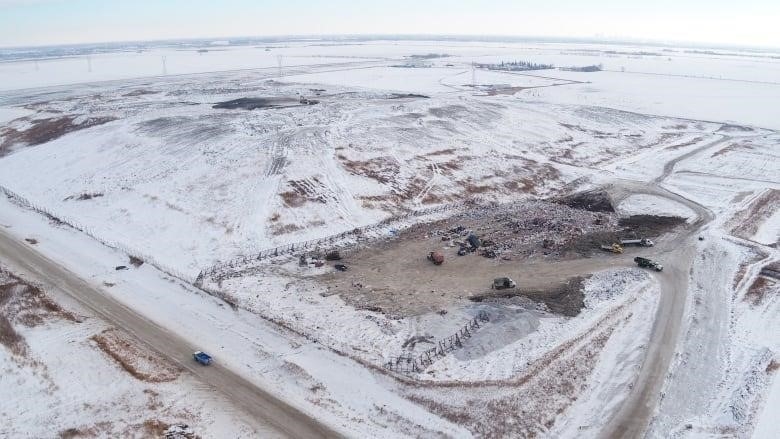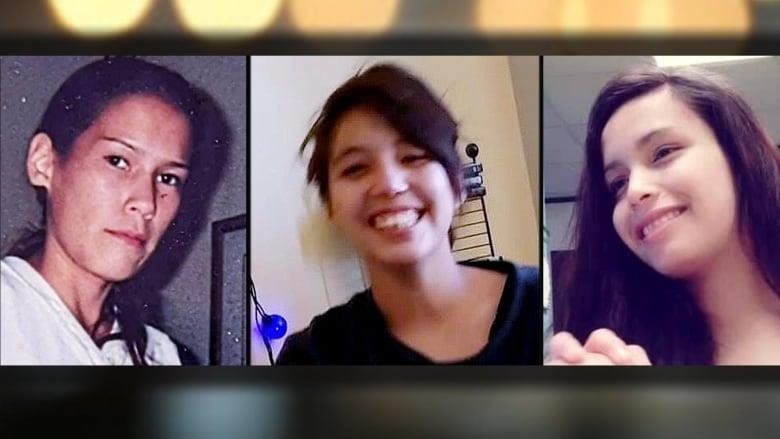
The search for the B.C. serial killer’s pig farm taught us a lot:Mounti
WARNING: This story has details that are upsetting..
A new document shows that the head of the RCMP told the federal government that the national police force could help the Winnipeg Police Service look for the bodies of two First Nations women in a landfill.
As anger grew over Winnipeg police’s initial refusal to search the site, RCMP Commissioner Brenda Lucki told federal deputy ministers about some of the ways the Mounties could help. For example, they could talk about their experience searching for serial killer Robert Pickton’s pig farm in British Columbia.
“This is by no means a detailed list or plan, but it does give an overview of some of what we can do in this space,” Lucki wrote in an email on December 16 that The Canadian Press got through the Access to Information Act.
The Prairie Green landfill is a privately run dump outside of Winnipeg. At first, Winnipeg police decided not to look there for the bodies of Morgan Harris and Marcedes Myran, who they think were killed by a serial killer.
Jeremy Skibicki, age 35, has been charged with four counts of first-degree murder in the deaths of Harris, Myran, Rebecca Contois, and Mashkode Bizhiki’ikwe, a woman who hasn’t been identified but who was named by Indigenous leaders (Buffalo Woman).
- The Assembly of Manitoba Chiefs says that a search of a landfill for the remains of women could start in April.
- The federal government will spend $500K on a feasibility study of a landfill search in the Winnipeg area.
The police said it was not possible to search the landfill for Harris and Myran’s bodies and that the chances of finding them were low. One reason was that so much time had passed.
Shortly before Lucki sent her email, Indigenous groups in Winnipeg set up their own committee to figure out if a search was possible and asked the federal government for help.On December 14, the Winnipeg police said they would be part of the group.
On December 7, the head of the Winnipeg police, Danny Smyth, told reporters that the police had not talked about the issue with Ottawa. This week, Kelly Dehn, a spokesperson for the Winnipeg police, wouldn’t say if the local force had asked the RCMP for help. She also wouldn’t say anything else because the case is in court.
The RCMP confirmed on Tuesday that Lucki gave the information to the federal government “voluntarily,” since neither the Liberal government nor the Winnipeg police had asked the Mounties to think about how they could help.
The RCMP “compiled information from within the organization in order to be prepared to respond to potential calls for assistance,” spokesperson Cpl. Kim Chamberland said in a statement Tuesday.
“At the time, the RCMP in Manitoba met with community leaders, provincial and local government officials, and Indigenous organizations in Manitoba to hear their concerns.”
The daughter of a woman whose body police think is in a landfill said that the Winnipeg police should have reached out “if they didn’t think they could find these women.”
Cambria Harris said in an interview on Tuesday, “I wish they would have talked to the RCMP, the provincial government, the federal government, the city government, or just anyone.”
“It seems to come down not only to what they say is possible but also to what is possible.”
Largest crime scene in Canad
One way the RCMP said it could help was by giving advice from its investigation of Pickton, whose pig farm in Port Coquitlam, B.C., became known as the largest crime scene in Canada.
Officers and experts searched the property for more than a year for missing women from Vancouver’s Downtown Eastside. After collecting hundreds of thousands of DNA samples and artifacts, the remains of several women were found.
“The search of Pickton’s property began more than 20 years ago, but active and retired investigators who worked on the project could be consulted by the Winnipeg Police Service,” says a document given to the deputy ministers of public safety and Crown-Indigenous relations.
It also said that about 100 undergraduate archeology students from Simon Fraser University had helped with the Pickton investigation and that “a program like this could work with universities and colleges in Manitoba.”
Along with Pickton, the document said that RCMP members who helped after the 1998 Swissair plane crash off the coast of Nova Scotia, where 229 people died, could be made available.
As for the site itself, the RCMP said that a bus should be considered for daily transportation because “many people in the city center don’t have cars.”
Cambria Harris says she can’t go as often as she would like because she doesn’t have the chance.
While making comparisons to Pickton, the RCMP warned that “health and safety” concerns at the landfill “will be present to a much greater degree” than at the farm search.They said that bacteria risks from animal remains, as well as risks from asbestos and toxic gases, “will be present to a much greater degree” than at the farm search.
It also made people think about costs.
“The cost of digging alone will be in the millions of dollars because all of the dirt (40 feet of it) would have to be trucked away to be sorted. At the same time, it cost $102 million to look into the Pickton site.”
“The Winnipeg Police Service hasn’t put out a public estimate of the cost, but experts have given them that number.”
This week, Winnipeg police refused to say how much it cost or talk about it.
Estimate of search costs to com
The Department of Crown-Indigenous Relations says it hasn’t gotten a cost estimate for a search yet and won’t until the Indigenous-led committee looking into the matter finishes its feasibility report and gives its recommendations.The Winnipeg police and the RCMP are both represented on the committee.
“At different times, during conversations with different agencies involved, loose comparisons to the work done to search the Pickton farm were made, but no exact cost estimates were given,” spokesman Matthew Gutsch said in a statement.
Ottawa gave the committee $500,000 to do its study, and the Assembly of Manitoba Chiefs is in charge of it.
Grand Chief Cathy Merrick of the assembly said last month that a search could start as soon as April, depending on what the investigation finds.
Harris says that the search could cost millions of dollars, but for Ottawa, “it’s pocket money.”
“You can’t put a price on a person’s life or death.”
Anyone affected by the details of these cases can get help. If you need help, you can call 204-594-6500, ext. 102 or 104 (within Winnipeg) or 1-888-953-5264 to reach Ka Ni Kanichihk’s Medicine Bear Counselling, Support, and Elder Services (outside Winnipeg).
Support is also available from the Missing and Murdered Indigenous Women and Girls Liaison Unit of Manitoba, Keewatinowi Okimakanak, at 1-800-442-0488 or 204-677-1648.
Indigenous people in Canada can also get help with their mental health and in times of crisis by calling the Hope for Wellness hotline at 1-855-242-3310 or by chatting online. This service is available 24 hours a day, seven days a week.
